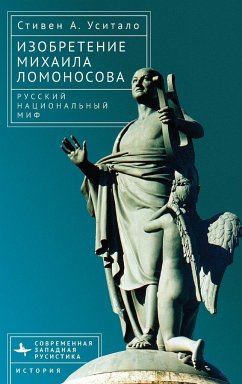
The Invention of Mikhail Lomonosov
A Russian National Myth

PAYBACK Punkte
29 °P sammeln!
This study explores the evolution of Lomonosov's imposing stature in Russian thought from the middle of the eighteenth century to the closing years of the Soviet period. It reveals much about the intersection in Russian culture of attitudes towards the meaning and significance of science, as well as about the rise of a Russian national identity, of which Lomonosov became an outstanding symbol. Idealized depictions of Lomonosov were employed by Russian scientists, historians, and poets, among others, in efforts to affirm to their countrymen and to the state the pragmatic advantages of science t...
This study explores the evolution of Lomonosov's imposing stature in Russian thought from the middle of the eighteenth century to the closing years of the Soviet period. It reveals much about the intersection in Russian culture of attitudes towards the meaning and significance of science, as well as about the rise of a Russian national identity, of which Lomonosov became an outstanding symbol. Idealized depictions of Lomonosov were employed by Russian scientists, historians, and poets, among others, in efforts to affirm to their countrymen and to the state the pragmatic advantages of science to a modernizing nation. In setting forth this assumption, Usitalo notes that no sharply drawn division can be upheld between the utilization of the myth of Lomonosov during the Soviet period of Russian history and that which characterized earlier views. The main elements that formed the mythology were laid down in the eighteenth and nineteenth centuries; Soviet scholars simply added more exaggerated layers to existing representations.














